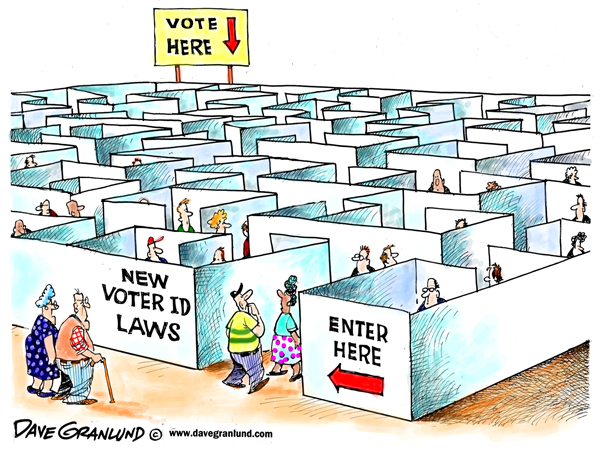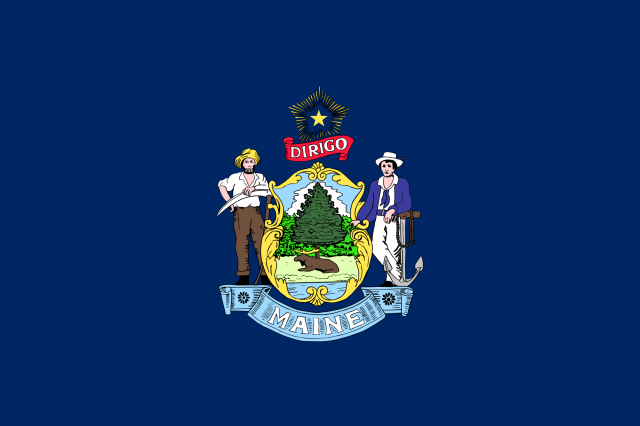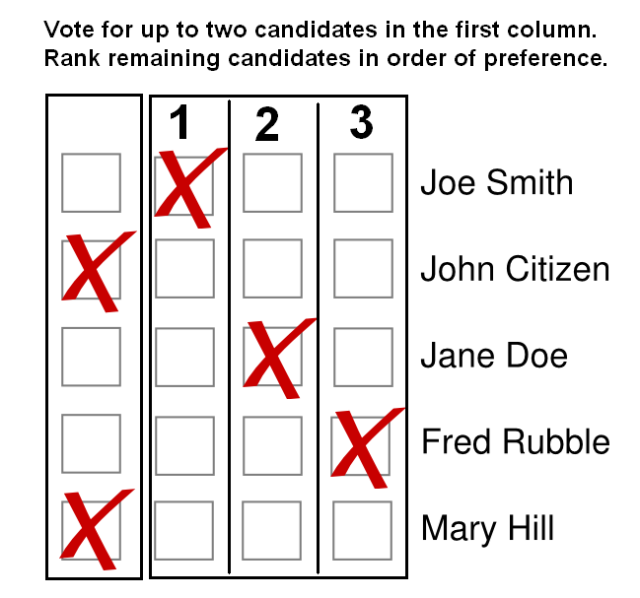
If you’ve watched the news during the past few election cycles you may have heard a number of politicians claim that voter fraud is running rampant throughout the United States, taking away the power of good, hard working Americans voting rights, and that Voter ID laws will be the cure to this problem. But despite these claims, voter fraud is a red herring for Voter ID laws to disenfranchise poor and minority voters.
According to the ACLU, “11% of U.S. citizens – or more than 21 million Americans – do not have government issued photo identification.” On top of this Voter ID laws disproportionately affect voters of color, “up to 25% of African-American citizens of voting age lack government-issued photo ID, compared to only 8% of whites.” With the enacting of voter ID laws a substantial number of poor Americans are subject to a plethora of negative effects, leaving the poor, the old, the working class, and the disabled with debts and on the wrong side of scheduling.
While some laws could waive the identification fee, some Americans could pay anywhere between $75 to $175 dollars to gain the necessary documents. Not to mention the cost of missing work in order to obtain the materials. The enacting of Voter ID laws could leave potential voters. These laws could also hold up voters at the polls, as poor, and 9-5 workers get to the polls they could be jam-packed.
The narrative that voter fraud is an extensive problem is overblown politicized nonsense. According to The New York Times, the Government Accountability Office “identified few instances of in person voter fraud.” They went on to state that in 2012, an Arizona State University reporting project affiliate, News21, discovered “there had been 2,068 cases of fraud nationwide since 2000, including episodes of absentee ballot fraud, intimidation, vote buying and double voting.” This is quantifiable evidence that although voter fraud does exist, voter fraud isn’t common enough to impact elections, let alone necessitate laws to curb the problem.
The purpose of the voter fraud exists simply to push the Voter ID laws into effect. Pennsylvania State Republican Party chairman, Robert Gleason said in an interview that their Voter ID law, “had helped a bit” to decrease the gap in votes between President Obama and Governor Romney in the 2012 election. And according to Todd Allbaugh, a former staff aide to a Republican state legislature, “A handful of the GOP Senators were giddy about the ramifications and literally singled out the prospects of suppressing minority and college voters.” The actual purpose of Voter ID laws is an open secret in denying the right to vote for political gain.
Although they are being disguised as a new tactic against democracy Voter ID laws are nothing but a wolf in sheep’s clothing.




 been made on our democracy and voting rights in the U.S. Up to this date,
been made on our democracy and voting rights in the U.S. Up to this date, 






